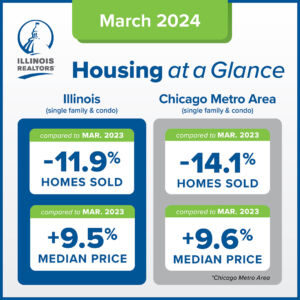Legal Case Studies: November 2020
Legal case studies in this issue:
- Farm Nuisance Suit Act’s fee-shifting provision is constitutional and applicable to agricultural plaintiff
- Death of owner terminated exclusive listing agreement
- Commercial seller was entitled to earnest money deposit as liquidated damages
- Even a silly sign can be adequate to protect a property owner from liability for injuries
- Update: suit against Chicago for disturbing lead pipes during water main replacements is dismissed
Research and analysis by Lisa Harms Hartzler,
Sorling Northrup Attorneys
Farm Nuisance Suit Act’s fee-shifting provision is constitutional and applicable to agricultural plaintiff
In Marsh v. Sandstone North, LLC, 2020 IL App (4th) 1903142, the plaintiffs owned farmland near the defendant’s hog farming operations in Scott County. In 2010, they sued the defendant, alleging a private temporary nuisance arising from offensive and noxious odors emanating from the defendant’s “swine factories” that impaired the plaintiffs’ quality of life and their ability to use and enjoy their property. In 2016, a jury returned a verdict in favor of the defendant.
The trial court refused to award the defendant attorneys’ fees under the Farm Nuisance Suit Act, holding the statute was inapplicable because the plaintiffs’ suit did “not pit non-agricultural interests against agricultural interests.” On appeal, the defendant argued the statute was applicable. The plaintiffs countered that even if it was applicable, the fee-shifting provision was unconstitutional.
The Farm Nuisance Suit Act was passed in 1981 and is considered a “right-to-farm” law. It was enacted in recognition of the problems caused by non-agricultural land uses extending into agricultural areas, which often results in farms being sued as nuisances. Such litigation can force a farm to cease operations or discourage farmers from making investments in farm improvements. The Act declares that its purpose is to conserve, protect, and encourage the development and improvement of its agricultural land for the production of food and other agricultural products, to reduce the loss of agricultural resources, and to limit the circumstances under which farming operations might be deemed to be a nuisance.
Section 3 of the Act changes the common law regarding nuisance by barring a plaintiff who “comes to the nuisance.” It declares that no farm shall be or become a private or public nuisance because of any changed conditions in the surrounding area occurring after the farm has been in operation for more than one year if the farm was not a nuisance when it began operation. One exception is for a nuisance that results from negligent or improper operation. The appellate court explained that such a bar reduces nuisance suits and promotes the purpose of the Act.
Section 4.5 of the Act also changes the general rule that each party in litigation must pay its own attorneys’ fees and expenses. This section provides that “in any nuisance action in which a farming operation is alleged to be a nuisance, a prevailing defendant shall recover” expenses and reasonable attorneys’ fees. The court focused on the plain language of this section and found no requirement that the plaintiff needed to have purely non-agricultural interests for the Act to apply. Although the court acknowledged that the purpose section of the statute generally referenced the extension of non-agricultural land uses into agricultural areas as a precipitating factor of nuisance suits against farms, the “clear and explicit” purpose of the Act was to reduce the loss to the State of its agricultural resources by limiting the circumstances under which farming operations could be deemed to be a nuisance. Consequently, even if the plaintiff were engaged in farming also, if they lost their suit, the fee-shifting provision applied.
The plaintiffs were also unsuccessful in any of their arguments that Section 4.5 was unconstitutional as special legislation or a violation of Equal Protection. The court held that there is no fundamental right to the use and enjoyment of property and a “strict scrutiny” of the Act was not needed. The statute was a legitimate exercise of the State’s police power to protect public health, public physical safety, and public financial safety. It only needed a “rational basis” to be constitutional.
The jury verdict in favor of the defendant was affirmed and the case was remanded to the trial court for an award of attorneys’ fees and expenses to the defendant.
Death of owner terminated exclusive listing agreement
In Newton Centre Realty, Inc. v. Jaffe, 97 Mass. App. Ct. 720 (2020), the owner of three residential properties in the Boston area entered into exclusive listing agreements with the plaintiff. The agreements were to last until August 31, 2018 and entitled the listing broker to a four-percent commission if the property was sold through anyone’s effort during the term of the agreements.
The owner died in November of 2017, long before the expiration of the listing agreements. Her son, the defendant, was named the personal representative of her estate. The defendant proceeded to sell and close on each property on November 18, 2018, for a total of over $5.7 million. The plaintiff broker sued to recover its commission, alleging breach of contract. The lower court dismissed the case and plaintiff appealed.
According to the appellate court, the issue of whether the death of the seller terminates a real estate brokerage agreement was a question of first impression in Massachusetts. The court quickly found, however, that a real estate listing agreement creates an agency relationship between the broker and the property owner, in which the broker acts as a representative of the owner. “Generally, the death of the principal automatically terminates the actual and apparent authority of the agent because it negates the existence of the person on whose behalf the agent acts.” Relying on a 1914 Illinois case, among others, the court concluded that death of the owner terminated the agency relationship by operation of law and ended the authority of the broker to seek a buyer for the property.
The appellate court affirmed the dismissal of this case.
Commercial seller was entitled to earnest money deposit as liquidated damages
In Smart Oil, LLC v. DW Mazel, LLC, 970 F.3d 856 (2020), the federal Seventh Circuit Court of Appeals reviewed a liquidated damages clause in a commercial contract for the sale of numerous properties containing gas stations and convenience stores. The clause provided that if the buyer did not purchase the properties, the seller’s damages would be extremely difficult or impossible to ascertain and the seller would be entitled to earnest money deposits of $750,000. The contract called for Illinois law to apply.
The buyer failed to make any of the required earnest money deposits and did not close on the purchase. The seller sued for breach of contract and claimed the entire amount of earnest money. At issue was whether the liquidated damages clause was enforceable.
A liquidated damages clause provides a predetermined remedy in the event a party breaches the contract. Such clauses are common in real estate contracts to avoid the difficulty of proving a party’s actual damages by evidence of market value, resale value, or other methods. The amount agreed to might exceed or be less than the actual damages a party suffered as a result of a breach; however, if both parties agreed to accept this risk, the predetermined remedy is enforceable in Illinois—as long as it is not clearly disproportionate to a reasonable estimate of actual damages. The court noted that this reasonableness requirement was not necessarily reasonable itself, especially in cases involving sophisticated parties who explicitly agree to the amount. Nevertheless, it found that the court’s need to examine reasonableness of the predetermined damages “hangs on” in Illinois jurisprudence and, therefore, it was not the federal court’s place to question its wisdom.
In this case, the court held that the liquidated damages amount was a bit more than one percent of the agreed purchase price of $67 million. Because other Illinois cases had found that earnest money deposits ranging from two to 15 percent of the purchase price were reasonable, an amount of one percent of the purchase price was not clearly disproportionate.
Finally, the buyer argued that since it had never made any of the required earnest money deposits, there was no amount to deliver to the seller, as the contract required. The court easily dismissed this claim, as it would lead to the absurd result of a wrongdoer being absolved of their debts simply by not paying them. The parties here were sophisticated commercial enterprises that engaged in extensive, arms-length negotiations and, with the advice of counsel, reached an agreement. The court held the buyer to its bargained deal and awarded the seller the entire $750,000 that should have been deposited plus its attorneys’ fees, as provided in the contract.
Even a silly sign can be adequate to protect a property owner from liability for injuries
In Smith v. The Purple Frog, Inc., d/b/a Pottsie’s Place, 2019 IL App (3d) 180132, the plaintiff sued a bar for injuries he sustained from a wall heater in the defendant’s outdoor beer garden. The plaintiff went to Pottsie’s Place on the night of December 2, 2014. He reportedly consumed eight beers and entered the bar’s beer garden without his coat to smoke. Installed in the beer garden was a wall-mounted propane heater which, because of the cold weather, was “cherry red hot.” The defendant had installed a sign above the heater, reading “Heater is hot. We are not responsible for your silly ass getting too close!! Thanks, Pottsie’s”.
Plaintiff admitted he was aware the heater was hot and that he had seen the sign. Nevertheless, he stood near the heater to get warm and, unfortunately, backed into it, causing his flannel shirt to catch fire. His injuries were treated by an EMT. Plaintiff sued the defendant for negligence because it did not adequately warn the plaintiff of the hazard posed by the heater or otherwise protect him from it. The trial court granted summary judgment for the defendant and plaintiff appealed.
In a negligence suit, a plaintiff must plead and prove that the defendant owed plaintiff a duty, the duty was breached, and the breach proximately caused the injury. A landowner may be liable for visitor’s injury caused by a condition on the property if the landowner (1) knows or by the exercise of reasonable care would discover the condition; (2) should expect that the danger will not be discovered by the visitor; and (3) fails to exercise reasonable care to protect the visitor against the danger. Thus, the bar owner had a duty to make the premises “reasonably safe.”
The appellate court acknowledged that the wall heater was placed in a manner that was hazardous to patrons standing too close. Nevertheless, the court explained, even if a landowner has a duty to keep his premises in a reasonably safe condition, he does not need to remove all dangers from his premises—an adequate warning to visitors suffices to render the condition “reasonably safe.” In this case, the sign posted above the heater adequately discharged that duty.
Further, a landowner “is not liable to his visitors for physical harm caused to them by any activity or condition on the land whose danger is known or obvious to them.” Obvious means that both the condition and the risk are apparent to and would be recognized by a reasonable person in the position of a visitor exercising ordinary perception, intelligence and judgment. Pottsie’s wall heater was obviously dangerous and the plaintiff admitted that he had seen and understood the warning provided by Pottsie’s.
There are two exceptions to this “obvious” rule. The “distraction exception” can impose liability on the landowner if he has reason to believe a visitor’s attention will be distracted so that he will not discover the obvious danger, will forget what he has discovered, or fail to protect himself from it. The distraction must be something outside of the visitor’s own mind and reasonably foreseeable to the defendant. In this case, the plaintiff argued that his intoxication at the time of the incident caused him to be distracted from the heater and that a bar serving liquor could reasonably foresee such distractions. The court did not buy this argument. It concluded the plaintiff created his own distraction that was internal to his own state of mind. Imposing liability on the bar would require it to provide for the total care and safety of intoxicated persons on its premises, an unduly onerous responsibility.
The “deliberate encounter” exception was similarly unavailable to the plaintiff in this case. To satisfy that exception, the plaintiff must demonstrate some compelling reason that forced him to confront the danger and that he lacked a viable alternative. The plaintiff could not begin to meet this exception. He could have worn his coat outside to stay warm while standing elsewhere in the beer garden.
The appellate court affirmed summary judgment in favor of Pottsie’s.
Update: suit against Chicago for disturbing lead pipes during water main replacements is dismissed
Berry v. City of Chicago, 2019 IL App (1st) 180871, was reported in the September 2019 Legal Case Studies. That class action suit alleged negligence and inverse condemnation against the City when the city replaced the water main and/or water meters connected to the plaintiffs’ homes, exposing them to lead poisoning. The trial court had dismissed the case but the appellate court reversed, holding that the plaintiffs’ complaint adequately stated claims. The City appealed to the Illinois Supreme Court.
The plaintiffs alleged that the City compromised the protective coating on the lead service lines to their residences during replacement of water main pipes and meters. In addition, the City replaced the City-owned portion of a lead service line with copper or galvanized pipe while leaving the privately-owned portion in place. The resulting connection between the new pipe and the old lead pipe would trigger a chemical reaction causing corrosion and the release of lead into the plaintiffs’ drinking water. The representative plaintiffs presented testing results showing elevated levels of lead in their water, which placed them at increased risk for lead poisoning.
The Court agreed with the City of Chicago that the allegation of negligence did not adequately state a claim because the plaintiffs did not allege any actual injury. No plaintiff suffered from the physical symptoms of lead poisoning. The Court explained that almost anything a person does while living and working in the world can create a risk of harm to others, but the primary purpose of tort law is not to punish or deter the creation of such risk. Rather, it is to compensate victims only when the creation of that risk manifests into injury. “An increased risk of harm is not, itself, an injury.” Consequently, the plaintiffs’ allegation of an increased risk of lead poisoning was not a present injury cognizable in the law.
In addition, the Court cited several practical reasons for this requirement of actual harm, including establishing a workable standard for judges and juries to determine liability. It also protects court dockets from becoming clogged with comparatively unimportant or trivial claims and reduces the threat of unlimited and unpredictable liability.
The Court also agreed with the City that the plaintiffs’ claims for inverse condemnation failed. The theory of inverse condemnation derives from the Illinois Constitution’s takings clause, which prohibits the taking of, or damage to, private property for public use without just compensation. In this case, the plaintiffs alleged that the City’s activities created an increased risk of corrosion in the service lines and, consequently, damage to them by making the lines more dangerous. The Court explained, however, that this kind of physical disturbance must actually impair the value of the plaintiffs’ property and be capable of being approximately measured. Simply asserting that property has been made “more dangerous” by the government is too remote and speculative to prove that the property has been damaged. Dangerousness, at least in this case, was not susceptible to objective measurement.
The Court reversed the appellate court’s decision and affirmed the trial court’s dismissal of both counts.
About the writer: Lisa Harms Hartzler is Of Counsel at Sorling Northrup Attorneys in Springfield. She graduated from the American University Washington College of Law in 1978 and began her legal career in Chicago. She has provided legal support for the Illinois REALTORS’ local governmental affairs program since she joined Sorling in 2006 and focuses her practice on municipal law, general corporate issues, not-for-profit health care law, and litigation support.





 Create professional development programs that help REALTORS® strengthen their businesses.
Create professional development programs that help REALTORS® strengthen their businesses.
 Protect private property rights and promote the value of REALTORS®.
Protect private property rights and promote the value of REALTORS®.
 Advance ethics enforcement programs that increase REALTOR® professionalism.
Advance ethics enforcement programs that increase REALTOR® professionalism.
 Protect REALTORS® by providing legal guidance and education.
Protect REALTORS® by providing legal guidance and education. Stay current on industry issues with daily news from Illinois REALTORS®, network with other professionals, attend a seminar, and keep up with industry trends through events throughout the year.
Stay current on industry issues with daily news from Illinois REALTORS®, network with other professionals, attend a seminar, and keep up with industry trends through events throughout the year.


